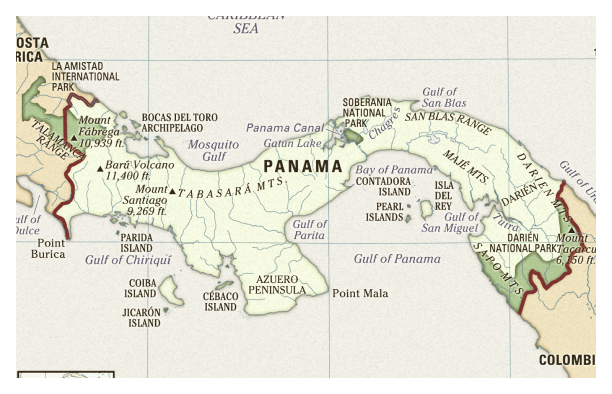Market Spotlight:
Panama

Factum Scale:
-
Panama is ranked 79 out of 190 countries on the World Bank’s Ease of Doing Business Index. It performs well on starting a business (38th) and access to electricity (26th).
-
It takes approximately 6 days to establish a business in Panama. The registration process is fairly efficient though some aspects, like construction permitting, are more complex and may take additional time.
-
Panama’s strategic location, use of the U.S. dollar as its official currency, and favorable tax policies help offset bureaucratic hurdles for investors and those establishing a new business.
-
Panama offers appealing investor incentives like tax exemptions, financing options, and special economic zones to enable business growth.
-
Recent digitalization efforts aim to further streamline procedures for company licensing, importing, paying taxes, and more.
Tariffs & Regulations
Factum Scale:
-
Panama levies low import tariffs – around 5-15% on average. Over 2,400 products, 60% agricultural exports, may be imported duty-free. Reductions apply under trade pacts like CAFTA-DR.
-
Foreign investors receive equal treatment as nationals. They benefit from protections like arbitration rights and the ability to fully repatriate funds.
-
Free trade zones offer added advantages like exemptions from import/export duties, national taxes, and foreign exchange controls.
Fluency in English
Factum Scale:
-
While Spanish is the official language, Panama has an expanding English-speaking population, especially in urban areas and the business community. It scores ‘moderate’ on the EF EPI scale.
-
The Panama Canal and the presence of major multinationals operating regional HQs contribute to English usage. Colleges increasingly offer degrees in English and bilingual schools are popular.
-
Government pushes for more English-language instruction and exchange programs have helped strengthen proficiency over time.
Society, Culture, and Business Etiquette
Factum Scale:
-
Panamanian culture draws influences from across Latin America and the Caribbean as a regional hub. Personal warmth and relationship building are valued when conducting business.
-
Greetings tend to be informal, such as a firm handshake and direct eye contact. Business meetings start and end on time. Appearances and dress matter!
-
Gift-giving plays an important cultural role in developing trust with your Panamanian counterparts. Be sure to come bearing a small gift or offering when meeting your business contacts for the first time.
Economic Stability
Factum Scale:
-
Panama has enjoyed over 25 years of strong economic expansion and boasts a $52.7 billion GDP, based heavily on its logistics, transportation, and tourism industries.
-
Strategically positioned for trade, the Panama Canal transports over 6% of world commerce. Major infrastructure projects are underway in Panama to sustain recent growth.
-
Prudent fiscal and monetary policies have secured Panama’s position as one of the fastest-growing economies in Latin America and the Caribbean in recent years.
Labor
Factum Scale:
-
Panama has a small but relatively skilled workforce of just 1.8 million workers. Labor participation is low (63.7%) but improving with increased roles for women.
-
Areas like technology, aviation, logistics, and tourism are currently suffering talent shortages. Work permits have helped attract foreign expertise where needed and wage rates have risen as a result.
-
Panama invests heavily in vocational training programs to build capabilities across priority sectors, from electrical and chemical engineers to hotel and restaurant administrators.
Business Structures
-
Popular foreign investment vehicles include corporations, limited liability companies, and branches. Joint ventures, partnerships, and sole proprietorships are also feasible.
-
Panama offers appealing tax benefits, especially for multinational companies and back office functions under ‘multinational corporation headquarters’ laws.
-
The ‘Sociedad Anonima’ corporation structure is widely used by foreign investors for its relative simplicity and flexible rules.
Business Landscape
-
Panama’s modern services economy centers on financial services, logistics, transportation, and tourism. Major local players lead across these industries along with retail/wholesale distribution.
-
The government actively courts foreign investment in priority areas like technology, aviation, electricity, and education through a dedicated investment promotion agency PROPANAMA.
-
Major multinationals operate regional HQs and production facilities in Panama given its business-friendly policies, strategic location, and currency stability.


